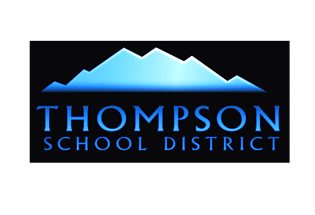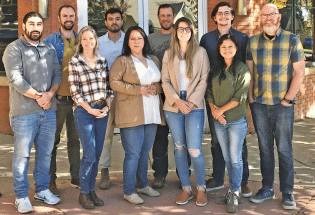Support the school bond and MLO initiative – 5A & 5B
By David Levy, Thompson School District Board of Education

Recent new housing construction and continued school funding reductions have challenged the Thompson School District (TSD) to provide a seat for every student in a nearby school and provide educational opportunities on par with our neighboring districts. The TSD Board of Education voted unanimously to place before the voters a School Bond and Mill Levy Override (MLO) to address these issues. Before voters approve any tax increase, they should determine (1) is it necessary and (2) what are the ramifications if it is not passed? Let’s discuss.
Housing construction
TSD is experiencing substantial new housing construction in Berthoud and the northeast portion of the district. The proposed bond includes adding new classrooms to both Berthoud and Ivy Stockwell elementary schools, already over capacity, plus a new K-8 school in the northeast area. If no new classrooms are added to Berthoud’s elementary schools, alternative solutions must be found, including placing fifth grade at Turner Middle School or drawing new school boundaries whereby students will be bussed to less crowded schools north of Berthoud.
Reduced state funding
The state legislature (not the local school district) determines education funding. Approximately one third of Thompson’s funding comes from local property taxes the other two thirds from state revenue (income and sales taxes). If local property taxes increase, due to increased property values or new construction, the legislature reduces the state’s contribution such that the total base funding for all students in the state remains the same. Therefore, growth in local property taxes does not increase funding for education.
In 2008 the economic downturn reduced state revenues, requiring a corresponding decrease in state spending. The Tax Payers Bill of Rights (TABOR) Amendment limits any future spending increases proportional to the growth in population and inflation. Although Colorado’s economy quickly recovered, state spending limits are based on the 2008 and 2009 revenue levels. Since 2008, this “Negative Factor” has short-changed Thompson approximately $140 million.
Faced with this funding reduction, TSD initiated a series of budget cuts including: Reduced central office staff, eliminated pay raises for several years, and delayed curriculum updates. It also deferred regularly scheduled maintenance, delayed IT upgrades, and drew down district financial reserves. If the MLO is not passed, the district will need to cut an additional $4 million to $4.5 million next year to balance the budget. Options include reducing staff and increasing class size.
Deferred maintenance
TSD includes 31 schools plus bus and operation facilities. Maintaining this infrastructure in a good state of repair requires scheduled replacement of roofs, furnaces, hot water heaters, painting, repaving parking lots etc., plus minor maintenance such as fixing leaking sinks or patching a broken sidewalk. When faced with the option of reducing staff and increasing class size or deferring maintenance, the district chose deferring maintenance. The district can replace a leaky roof three years after its useful life has been reached, but it can’t provide a quality third grade education to a student three years later when they are in the sixth grade. Since 2008 every school board has approved the budget that maintains class size by deferring maintenance. More than 62 percent of the proposed bond will fund overdue critical maintenance and IT upgrades.
MLO will increase school revenue
Many districts addressed the revenue reduction by approving a Mill Levy Override (MLO) – an increase in local property taxes. As stipulated in the state constitution, any voter-approved MLO does not reduce the state’s contribution to education. In other words, the MLO provides the district additional funding. The chart below shows the MLO rates in Thompson and neighboring districts.
District MLO Rate
St. Vrain (Longmont) 56.4
Poudre (Fort Collins) 52.6
Windsor 49.2
Greeley 6 45.6
Thompson 36.3
The proposed MLO will increase the mill rate by 7.4, raising Thompson’s rate to 43.7, still lower than our neighboring districts.
Retaining our best teachers
As shown above, the voters in the neighboring districts have agreed to higher MLO rates to help restore the reduction in state education funding. This allowed them to pay their teachers higher salaries and left Thompson in a very non-competitive position. Currently, Thompson pays its midlevel teachers 17 percent less and 15 percent less than the neighboring Poudre and St. Vrain Districts, respectively. Many experienced teachers left the district. Two years ago more than 40 percent of Thompson teachers had only four years of experience or less. Last year, 16.8 percent of Thompson teachers did not return as compared to 9.7 percent and 10.9 percent for the Poudre and St. Vrain Districts, respectively.
I personally would never ask my fellow citizens to pay higher taxes unless it was necessary and cost effective. The growth in residential construction requires additional classrooms as provided in the bond. The MLO would provide curriculum upgrades and additional funding to provide more competitive salaries. The proposed Bond and MLO would increase taxes on a $350,000 home $286 per year, or $0.78 per day. I would be happy to discuss any questions you have via e-mail [email protected] or phone 970-342-5612.
Quality public education is a cornerstone of America’s future. Please join me in supporting initiatives 5A and 5B.
- May, 19 2017

School district passes new teacher co...
By Amber McIver-Traywick The Surveyor Wednesday evening the Thompson School District Board of Education passed...
- August, 30 2019

Thompson school board approves strate...
By Dan Karpiel The Surveyor At Wednesday night’s meeting of Thompson School District (TSD) Board...
- April, 25 2024

Thompson School District reviews bond...
By Brendan Henry The Surveyor The Thompson School District held its monthly school board meeting...
- May, 14 2015

School district implements new safety...
By Bob McDonnell The Surveyor Since the shooting at Columbine High School in April 20,...
- November, 05 2022

BHS marching band earns second at sta...
Courtesy photo - The Berthoud High School march band took second...
- March, 25 2022

Three Berthoud Robotics teams head to...
Three Berthoud Robotics teams are headed to the VEX Robotics Worlds Championship this year to...
- Asher Architects builds projects from...

- More than a market, a family legacy

- Colorado business confidence is impro...

- Community Calendar & Legal Notice...

- Community Calendar & Legal Notice...

- Community Calendar & Legal Notice...


Unified basketball comes to Turner Middle School
Community News

Mike Grace says goodbye as Brett Wing joins town board
Community News
POLICEBLOTTER
Community News
Northern Water sets C-BT quota at 70% for 2024
Community News

Emotions run high during Revere Property hearing
Community News
Snowpack at 119% above normal
Community News

Karspeck to serve third term as Berthoud mayor
Community News
COMMUNITY CALENDAR:
Community Calendar – add an event
Homestead Fine Art Gallery First Fridays OPEN HOUSE
03 May 4:00 PM - 7:00 PM
Homestead Fine Art Gallery First Fridays OPEN HOUSE
07 Jun 4:00 PM - 7:00 PM
Homestead Fine Art Gallery First Fridays OPEN HOUSE
05 Jul 4:00 PM - 7:00 PM
Homestead Fine Art Gallery First Fridays OPEN HOUSE
02 Aug 4:00 PM - 7:00 PM
Homestead Fine Art Gallery First Fridays OPEN HOUSE
06 Sep 4:00 PM - 7:00 PM
Homestead Fine Art Gallery First Fridays OPEN HOUSE
04 Oct 4:00 PM - 7:00 PM













